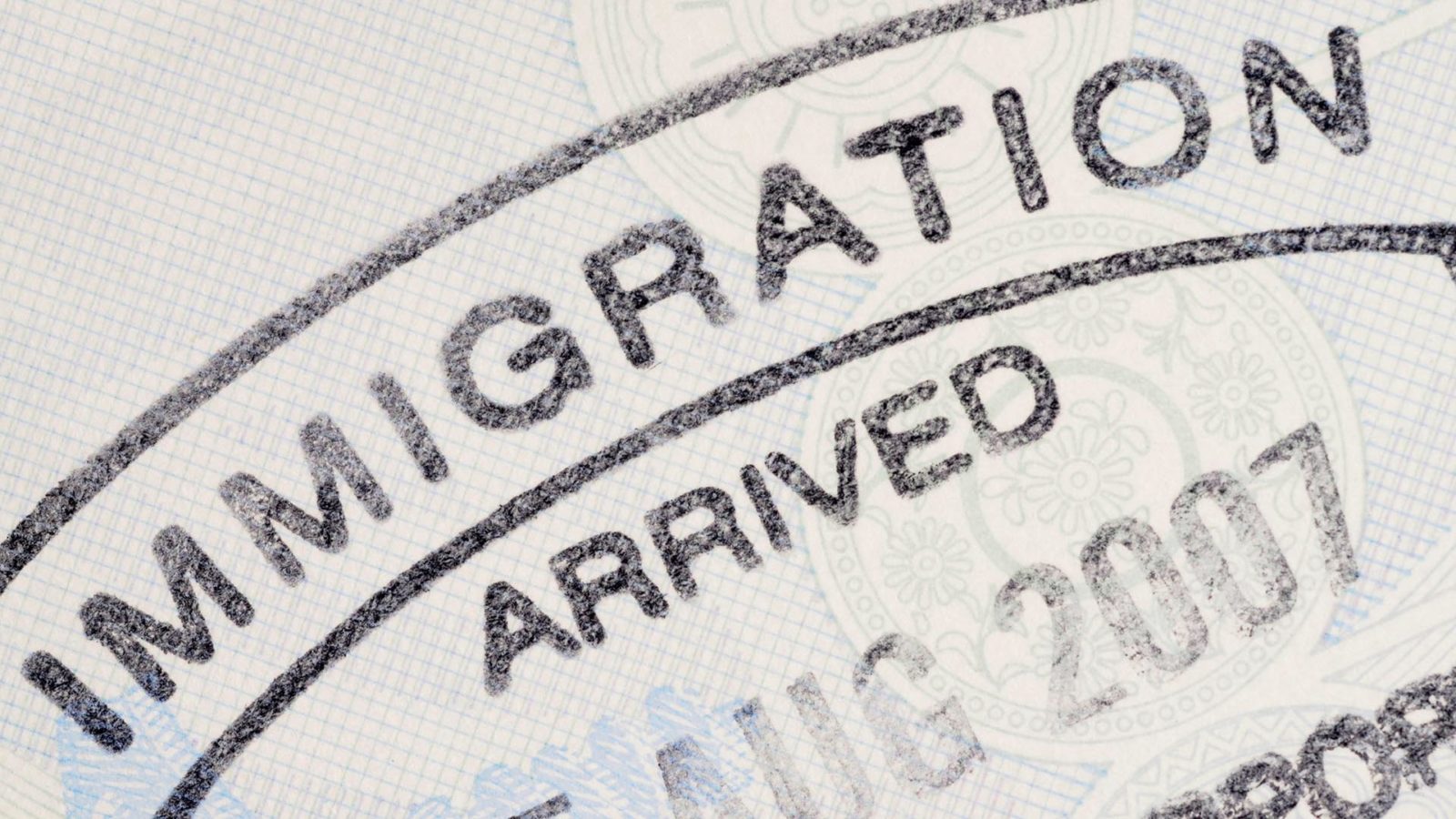Seattle Citizenship Attorney Helping You
For many immigrants in the Seattle area, achieving citizenship or naturalization status in the United States is a hard-won experience that is a major milestone in their lives. You will have to commit yourself to a process heavily regulated by the government. If you plan to begin the path to citizenship or naturalization, it is critical that you work with a knowledgeable Seattle citizenship attorney to help guide you through the process.
The legal team of ZafiroLaw understands the challenges, frustrations, and anxiety you might feel throughout your journey. As immigrants ourselves, we have a hard-to-find quality that many immigration attorneys in Washington do not possess: the first-hand experience of navigating the citizenship process.
What is the Difference Between Citizenship & Naturalization?
As a Seattle naturalization lawyer, one of the biggest misconceptions that clients have is that citizenship and naturalization are the same.
What is Citizenship?
Citizenship is a birthright granted to you by your parents. A citizen has a right to:
- Vote
- Serve in the military
- Be tried in court
- Live and work in the country
Acquiring citizenship, without naturalization, is possible if you were:
- Born in a U.S. territory
- Born from parents who are U.S. citizens
Naturalization provides a path to becoming a legal citizen of the U.S., but there is one main difference: naturalization is not a birthright for the individual.
What is Naturalization?
Naturalization requires you to meet stringent eligibility requirements and it occurs after birth. If you meet the three main paths of naturalization, you’ll need to submit Form N-400 and be at least 18 years of age.
U.S. Citizenship and Immigration Services has an eligibility determination tool that can help you verify whether you meet all requirements.
Naturalization will grant you the same rights as someone who was granted citizenship at birth, but it’s done through:
- Filing many forms
- Meeting lawful permanent residency requirements
- Swearing allegiance to the U.S.
If you want to become a United States citizen and do not have citizenship from birth, naturalization is the path to pursue.
FAQ: What Happens When You Become A Naturalized U.S. Citizen?
How to Obtain a Certificate of Citizenship
To qualify for a Certificate of Citizenship, usually, one parent must be a U.S. citizen by birth or has resided in the United States for a certain amount of time past the age of 14. For children born abroad whose parents are citizens, things get more complicated as the rules governing this process continually change.
Regardless of how you qualify for citizenship, you will need to provide evidence, including any of the below:
- Birth certificate
- Consular report with information of your birth abroad
- Passport
- Naturalization certificate
You will need to fill out an application (N-600) to get a Certificate of Citizenship, but consider hiring an attorney to help you complete it. It can take a year or more for it to be approved, and any mistakes can set you back a significant amount of time.
What Happens During the Naturalization Process?
Compared to the citizenship certificate process, pursuing a Naturalization Certificate is like running a marathon with your shoes tied because of all the steps you will need to complete and the length of time it takes to do them.
This process is managed by the United States Citizenship and Immigration Service (USCIS), which is responsible for ensuring that all foreign nationals at least 18 years of age have an opportunity to become a naturalized citizen if all conditions are met. The initial requirements to apply for naturalization involve the following:
- Have the qualifying length of permanent resident status
- Submit a completed N-400 form to USCIS
- Meet the mandatory residency requirements
- Possess the necessary proficiency level in writing and speaking English
- Show good moral character
- Can pass a background check and have no criminal cases pending against you
- Are willing to serve the United States military when called upon
In addition to the eligibility qualifications, you will also need to submit documentation about yourself, including:
- A copy of your permanent resident card
- A passport photograph of yourself
- A copy of your most recent IRS tax return if requested
- A copy of your marriage certificate if married
There are also filing fees involved with this process. Once submitted, you will then undergo a mandatory review process that involves several steps, including:
- A naturalization interview
- Pass a civics test
- Take an additional English reading and writing competency test
If everything goes smoothly with the help of an experienced King County naturalization attorney from ZafiroLaw, you will then be asked to surrender your permanent resident card. After this step, you are ready to take the Oath of Allegiance and receive your Certificate of Naturalization.
How Do You Prepare for the Naturalization Test?
What Are My Rights as a Naturalized Citizen?
As a naturalized citizen of the United States, you are afforded the same rights and protections as those who are natural-born. This means that you will gain the right to vote in U.S. elections, can obtain a U.S. passport, and can travel to certain countries without a visa.
What Are the Benefits of Becoming a Naturalized Citizen?
Naturalization is a major step forward for someone who wants to have the same rights as someone who is a citizen by birth. You’ll gain many benefits from naturalization:
- Pass citizenship to your children: If you have children under the age of 18, you’ll automatically transfer your newfound citizenship to them. Automatic citizenship will make the lives of your children much easier when residing in the U.S.
- Reunification paths: Family reunification as a citizen is far greater than as a lawful permanent resident. You’ll have the right to petition for siblings, parents and other adults that you do not have as a non-citizen.
- Government jobs: If you have ambitions to work for the federal government, you can now apply and pursue this career path. You can even run for public office.
- Voting: Citizens can vote in elections.
- Travel: You can apply for a U.S. passport, allowing you to easily enter 180+ countries without a visa.
- Federal benefits: Naturalization makes you eligible to seek federal college assistance, grants, and scholarships.
Citizens cannot be deported, so you can be confident that you can build your life in the U.S. without the risk of deportation. You can even avoid long customs lines when you reenter the U.S. from international destinations.
Call us to discuss your naturalization with a Seattle naturalization lawyer and let us guide you to approval.
Who Is Eligible to Be a Naturalized Citizen in the United States?
To become a naturalized citizen of the U.S., applicants must meet several requirements. The most basic requirements are:
- Be at least 18 years of age
- Be of good moral character
- Have the ability to speak, read and write basic English
Having these three qualities doesn’t automatically make you eligible for naturalization, however. You must also be on one of the qualifying paths for naturalization.
There are three main paths to naturalization in the U.S.:
- 3 years as a permanent resident living with and married to a U.S. citizen
- 5 years as a permanent resident (Green Card holder)
- Serving in the U.S. Armed Forces
Children of U.S. citizens are also eligible to apply for naturalization.
Generally, to be eligible for naturalization, you must be able to:
- Prove that you have been a lawfully admitted permanent resident for a certain number of years.
- Show that you’ve had continuous residence in the U.S. for a certain number of years.
- Show that you have lived for at least three months in a state and were physically present in the U.S. for a certain number of months out of the last five years.
- Read, speak and write English.
- Have an understanding of U.S. history and the principles and form of government.
- Show that you are of good moral character and attached to the principles of the Constitution.
If you are married to a U.S. citizen, you must have lived with your spouse during the three years prior to submitting your application.
What Happens to Your Green Card If Your Application for Naturalization Is Denied?
USCIS officers can deny a naturalization application for a number of reasons, including procedural and technical errors. If your application is rejected, you may be wondering what will happen to your green card and whether you will be deported.
Typically, a denial of citizenship does not lead to deportation – unless USCIS officers find evidence of fraud or other grounds that make you ineligible for permanent residency status.
If you were unable to prove your 5-year continuous stay or failed the English ability test, you will likely just go back to permanent resident status. If legal matters (divorce, being involved in a misdemeanor, etc.) were the cause of your denial, you may also go back to permanent resident status, provided the issue is not grounds for deportation.
In other words, unless your rejection was due to an issue that makes you ineligible for residency status, you will retain your green card.
If your application was denied, a Seattle naturalization lawyer can help you file an appeal. Time is of the essence, so it’s important to act quickly. You have 30 days from the date of the denial to appeal the decision.
A Seattle Citizenship Attorney from ZafiroLaw Can Help
Speak with naturalization and citizenship attorneys who have experienced the process of becoming a citizen of the United States. At ZafiroLaw, we have assisted immigrants throughout the great state of Washington and across the country achieve their citizenship or naturalization goals. Our personal experience with navigating U.S. immigration law and extensive case practice makes our firm the right choice to support you through this intensive legal process. We proudly serve communities throughout Snohomish and King County, including Seattle, Kirkland, Mountlake Terrace, Edmonds, and Mukilteo.
To learn more about how ZafiroLaw can help you with achieving citizenship, please call us at 206-547-9906 or contact us today!


